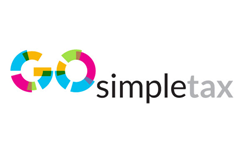
Many people find it frustrating that after they've worked hard to generate a profit, a big slice goes to the taxman. Benjamin Dyer of Powered Now looks at some ways to manage your tax affairs legally and ethically while minimizing your liabilities
1. Follow the rules
If there's one thing worse than having to pay too much tax, it's having a fine on top for not following the rules. Here are some basic pointers to consider:
- If you're a sole trader you must register with HMRC and file a tax return showing sales and costs, irrespective of whether you think that you will have to pay income tax or not.
- If you are in the field trade industry and work for other businesses, you usually have to register under the Construction Industry Scheme (CIS).
- If you want to create a limited liability company you'll have to go through "company formation". After that you'll have to file annual accounts with corporation tax calculations and once a year file a confirmation statement (previously known as the "Annual Return").
- If your sales exceed the VAT threshold of £90,000, you must register for VAT and file quarterly VAT returns with payments.
- If you employ staff, you must do PAYE registration and also enrol them into an employee pension scheme.
You must always be careful about treating people as self-employed. If they use your tools or computers and you tell them where and when to work, then you should probably be employing them.
Remember that deliberately trying to avoid valid taxes leads to fines and five years of more onerous reporting.
 New tax year – new you
New tax year – new you
You can file your self-assessment from the 6th April. Know your tax owed and start the tax year in control.
For self-employed individuals, sole traders, or those with non-PAYE income, GoSimpleTax provides direct self-assessment filing with HMRC, offering helpful hints and savings tips throughout the process. Let GoSimpleTax handle all calculations.
2. Delay VAT registration - or register early!
You must register for VAT and charge your customers VAT when your trailing 12-month sales exceed the registration threshold. However, it is possible to register early if you are going to be making losses but then rapidly increasing sales afterwards. That way you can claim your VAT back from HMRC in the early loss-making months.
If you're not VAT registered, you don't have to charge VAT and it would actually be against the law to do so. If you sell mostly to consumers, this gives you a competitive advantage while you are under the threshold. One way to stay that way, for instance if you install central heating systems or bathrooms, is by getting your customers to pay directly for materials which results in your sales being lower. That may delay the evil day of VAT registration by a few months, and sometimes years.
3. Claim for everything that you can
It is surprising how much you can claim back under business expenses, and all of this reduces your tax bill. What is important is to capture every single cost related to your business. This is best done as soon as a cost is incurred, as it makes it less likely you will forget or miss things.
Where you use a room in your house for an office, you can claim rent from the business as well as a share of the bills.
4. Know your allowances and benefits
If your business makes money, the challenge is how to best access it. There are several levers to pull to get the best legal result. Your money can be subject to income tax, national insurance contributions (as the employee and the employer), corporation tax and tax on dividends plus tax on benefits such as company cars.
There are a series of tax-free allowances that are available - for instance you can earn £12,570 before you pay income tax. If you have a partner who is not in full time employment and they do some work for the business, they can be paid and it will be tax free. If they also own shares in the business they can receive dividends. There is also the option of pension contributions.
If your company needed start up capital to get going, then you can loan the money to the company. This can then be repaid to you without being taxed.
There are also benefits that can be given such as childcare vouchers, bicycle schemes, etc - all of which can be very tax-effective.
5. Use an accountant
As if choosing between all the options above wasn't hard enough, in recent years the Chancellor has made a number of changes each year that impact the tax position for both the self-employed and limited liability companies. That means as the tax landscape shifts, what worked well last year will not necessarily be the optimal strategy this year.
This is why it is such a good idea to use an accountant to help. But just remember that even if your accountant prepares your tax return, you are still responsible for making sure it's accurate and filed correctly.
Written by Benjamin Dyer, co-founder and CEO of Powered Now Invoicing App, helping tradespeople to simplify paperwork and save time.


